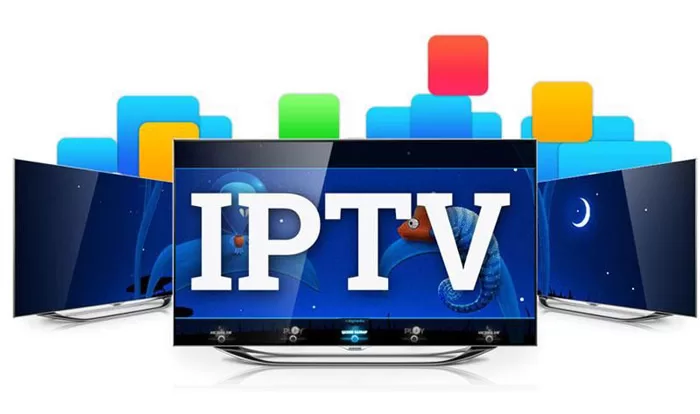What Is IPTV Service? Everything You Need to Know in 2025

In today’s rapidly evolving virtual world, traditional TV viewing is transforming. One of the key technologies using this variation is IPTV or Internet Protocol Television. If you’ve been curious about what IPTV is, how it works, and why it’s gaining so much traction in 2025, you’ve come to the right place. This comprehensive manual will break down everything you need to know about Iptv service, from its basics to its future trends.
What Is IPTV?
IPTV stands for Internet Protocol Television. Unlike conventional cable or satellite TV, which delivers content via radio waves or satellites, IPTV provides television programming through Internet Protocol (IP) networks. Positioned, IPTV utilizes your broadband internet connection to stream live TV channels, on-demand films, and various multimedia content directly to your device.
How Does IPTV Work?
At its core, IPTV works by converting video content into data packets and sending these packets through an IP network, typically your home internet. Here’s a simplified breakdown:
- Content Acquisition: TV indicates that movies, TV shows, and other content are accumulated from numerous assets, such as studios, broadcasters, or live events.
- Encoding and Compression: This content material is compressed into virtual formats (which include MPEG or H.264) to lessen size without dropping quality.
- Content Delivery: The virtual streams are dispatched through IP networks using protocols such as HTTP Live Streaming (HLS) or Real-Time Messaging Protocol (RTMP).
- User Access: You receive this movement for your device through an IPTV app, a smart TV, or an IPTV set-top box.
- Playback: The video player for your device decodes the move and performs it efficiently.
- The key distinction is that IPTV allows you to watch live TV or video-on-demand via internet streaming instead of traditional broadcast methods.
Types of IPTV Services
In 2025, IPTV services come in various forms tailored to different needs:
- Live IPTV: Streaming of live TV channels in real-time, similar to traditional broadcast but delivered over the internet.
- Video on Demand (VOD): Access to movies and shows whenever you want, like Netflix or Hulu.
- Time-Shifted TV: Allows viewers to pause, rewind, or watch live TV after it has aired.
- Catch-Up TV: Allows users to watch shows that aired earlier, typically within a specified time window.
Many IPTV providers offer a combination of these options, providing users with a comprehensive entertainment package.
Why Is IPTV So Popular in 2025?
IPTV has skyrocketed in popularity recently for several reasons:
1. Flexible Viewing Experience
With IPTV, viewers aren’t restricted by broadcast schedules. You can watch what you want, when you want, on any device—be it a smartphone, tablet, smart TV, or computer.
2. Better Content Variety
IPTV services often provide access to thousands of live channels worldwide, as well as an extensive library of on-demand content. This variety surpasses what traditional cable packages offer, especially for niche or international channels.
3. Cost-Effectiveness
Since IPTV operates over existing internet infrastructure, it often costs less than traditional cable or satellite subscriptions. Many providers offer affordable plans or even free content funded by ads or freemium models.
4. High-Quality Streaming
Thanks to faster broadband speeds and improved compression technologies, IPTV streams in high definition (HD), 4K, or even 8K resolution, delivering crystal-clear pictures and sound.
What Devices Can You Use for IPTV?
One of IPTV’s most significant advantages is device versatility. You can enjoy IPTV on:
- Smart TVs: Many smart TVs come with built-in IPTV apps or support third-party apps.
- Streaming Devices: Devices like Amazon Fire Stick, Roku, Apple TV, or Google Chromecast can run IPTV apps.
- Computers and Laptops: Using dedicated software or web browsers.
- Smartphones and Tablets: Most IPTV providers offer mobile apps compatible with iOS and Android devices.
- Set-Top Boxes: Some users prefer IPTV set-top boxes, which connect to your TV and provide a dedicated IPTV interface.
Legal Considerations of IPTV in 2025
While IPTV technology itself is legal and widely used by major broadcasters and telecommunications companies, the legal status of the content being streamed depends on the specific content being streamed. Licensed IPTV services that distribute authorized content are entirely legitimate.
However, some IPTV services offer unauthorized access to copyrighted material at a lower cost or for free, which is illegal and could lead to penalties. It’s crucial to use reputable IPTV providers to avoid legal troubles and ensure a safe, high-quality viewing experience.
How to Choose the Best IPTV Service in 2025?
Choosing an IPTV service can be overwhelming, given the numerous options available. Here are key factors to consider:
- Content Selection: Check if the service offers your favorite channels, movies, and shows.
- Streaming Quality: Look for providers that support HD or 4K streaming with minimal buffering.
- Device Compatibility: Ensure the service is compatible with your preferred devices.
- User Interface: A clean and easy-to-navigate interface enhances your viewing experience.
- Customer Support: Reliable customer service can help resolve any issues quickly.
- Subscription Plans: Compare pricing models and any available free trial offers before committing.
- Reviews and Reputation: Read user reviews and expert opinions to ensure credibility.
Future Trends in IPTV for 2025 and Beyond
As we move further into 2025, IPTV technology is poised to become even more sophisticated. Here are some trends to watch:
1. AI-Powered Personalization
Artificial intelligence will play a bigger role in tailoring content recommendations based on your viewing habits, making it easier to discover new favorites.
2. Interactive TV Experiences
IPTV platforms will incorporate more interactive features, such as real-time polls, shopping through TV, and social media integration, turning passive viewers into active participants.
3. Cloud DVR and Storage
Cloud-based DVR options allow users to record and store shows online, making them accessible anytime from any device.
4. 5G and Edge Computing
With 5G becoming widespread, IPTV streaming will be faster and more reliable, even on mobile devices. Edge computing will reduce latency, thereby improving the quality of live streaming.
5. Global Content Expansion
IPTV providers will expand international content offerings, catering to global audiences with diverse tastes and languages.
Final Thoughts
The answer is a resounding yes. IPTV is revolutionizing how we consume television by combining the power of the internet with multimedia entertainment. Its flexibility, affordability, and superior quality make it an attractive alternative to traditional TV services.

Source: What Is IPTV Service? Everything You Need to Know in 2025


